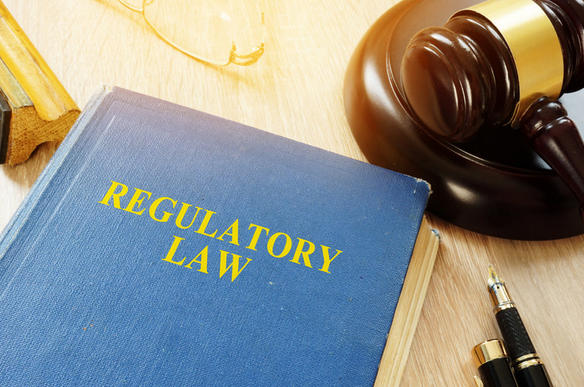By Eli Rosenberg and Ann E. Marimow Nov. 12 – The Washington Post
A federal appeals court in New Orleans has halted the Biden administration’s vaccine or testing requirement for private businesses, delivering another political setback to one of the White House’s signature public health policies.
A three-judge panel of the U.S. Court of Appeals for the 5th Circuit, helmed by one judge who was appointed by President Ronald Reagan and two others who were appointed by President Donald Trump, issued the ruling Friday, after temporarily halting the mandate last weekend in response to lawsuits filed by Republican-aligned businesses and legal groups.
Calling the requirement a “mandate,” the court said the rule, instituted through the Labor Department, “grossly exceeds OSHA’s statutory authority,” according to the opinion, written by Judge Kurt D. Engelhardt and joined by Judges Edith H. Jones and Stuart Kyle Duncan.
“Rather than a delicately handled scalpel, the Mandate is a one-size fits-all sledgehammer that makes hardly any attempt to account for differences in workplaces (and workers) that have more than a little bearing on workers’ varying degrees of susceptibility to the supposedly ‘grave danger’ the Mandate purports to address,” they wrote.
They said they believed that the ruling imposed a financial burden on businesses and potentially violated the commerce clause of the Constitution.
“The Mandate imposes a financial burden upon them by deputizing their participation in OSHA’s regulatory scheme, exposes them to severe financial risk if they refuse or fail to comply, and threatens to decimate their workforces (and business prospects) by forcing unwilling employees to take their shots, take their tests, or hit the road,” they wrote.
The New Orleans-based 5th Circuit is considered one of the country’s most conservative appeals courts.
The vaccine mandate was released by the Biden administration last week after weeks of deliberation. It says private employers with more than 100 employees must require staff to get vaccinated — or face weekly testing and mandatory masking. Workers who don’t work on-site or with others are able to be exempted.
Even though the testing option makes it softer than many of the requirements instituted by private companies and state and municipal governments, it has faced strong blowback from a chorus of conservative groups, businesses and mostly Republican officials.
The court halted the policy, scheduled to take effect Jan. 4, and ordered the Occupational Safety and Health Administration not to take further steps to implement or enforce the mandate. It is not clear whether the 5th Circuit will determine the fate of the mandate. The Biden administration had asked the 5th Circuit to hold off on ruling until a judicial lottery can take place next week to consolidate several challenges to the mandate before a single appeals court.
A Federal officials spent weeks hammering out the policy, aware of the high number of legal challenges it would face but believing that the order was well within the Labor Department’s powers to keep workplaces free of “grave dangers” in times of emergency.
The requirement is supported by a majority of the American public, according to public opinion surveys, and is a critical step to increasing vaccination rates and getting the pandemic more firmly under control, public health experts say.
And mandates do appear to have helped drive increases in vaccination rates among target populations. United Airlines, which had one of the strictest mandates for a major air carrier, said its employee vaccination rate increased to more than 99 percent. Delta, which used financial penalties and testing requirements, saw the employee vaccination rate jump to 90 percent from 75 percent. Many hospitals in New York and California saw vaccination rates increase to more than 90 percent by the deadlines of the states’ mandates for health-care workers.
